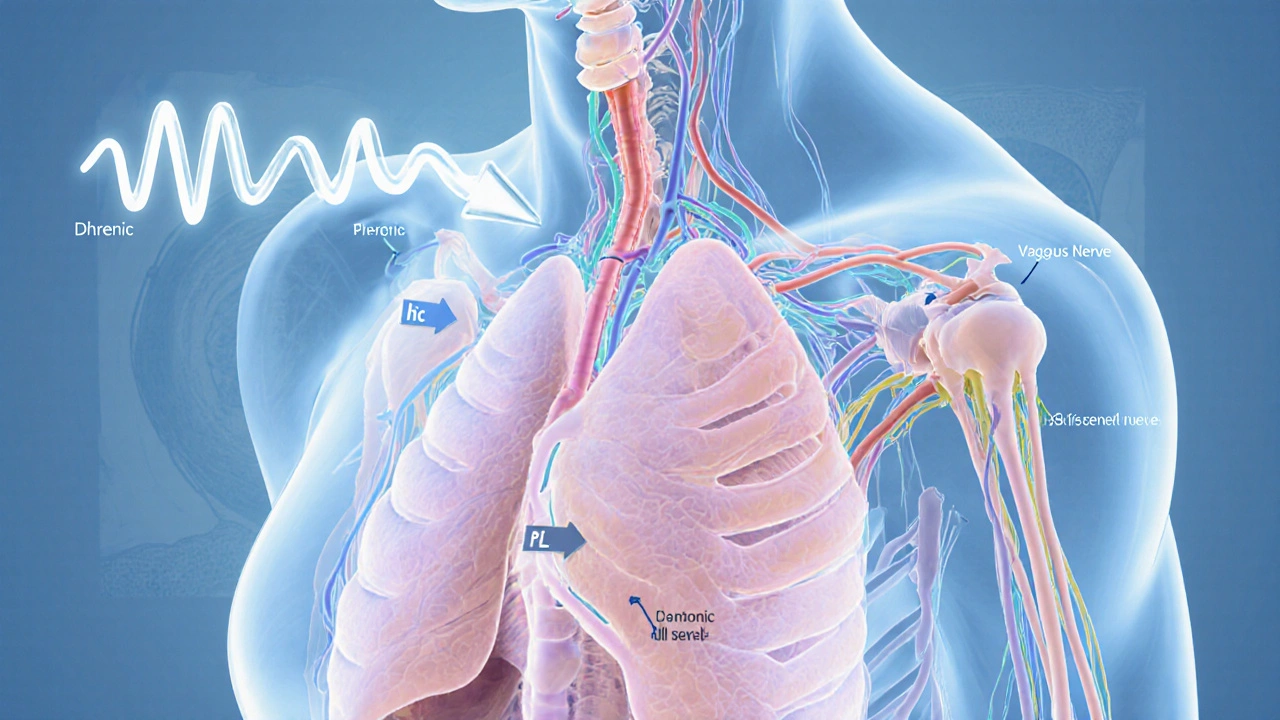Hiccup Causes: What Triggers Those Annoying Spasms?
When dealing with hiccup causes, the factors that set off involuntary diaphragm contractions leading to the familiar "hic" sound. Also known as hiccup triggers, they can range from everyday habits to medical conditions, and understanding them is the first step to finding relief.
One of the most common related entities is hiccups, brief, involuntary contractions of the diaphragm followed by a sudden closure of the vocal cords. Hiccups themselves are a symptom, not a disease, and they often point to an underlying cause. Another key player is diaphragm spasms, sudden, uncontrolled tightening of the muscle that separates the chest from the abdomen. These spasms can be sparked by rapid eating, carbonated drinks, or even sudden temperature changes in the stomach. Then there’s gastroesophageal reflux, the backflow of stomach acid into the esophagus that irritates the lining and can provoke the reflex that causes hiccups. Finally, medication side effects, adverse reactions to certain drugs such as steroids, benzodiazepines, or chemotherapy agents that disturb the nervous system’s control over the diaphragm often hide behind the noise.
How These Factors Connect
Think of hiccup causes as a web: diaphragm spasms require a trigger, like a swallowed air bubble, and that trigger can be a gulp of soda or a bout of anxiety. Gastroesophageal reflux influences hiccup causes by irritating the phrenic nerves that signal the diaphragm. Medication side effects contribute to the picture when they alter nerve signaling or irritate the stomach lining, making hiccups more likely. Even lifestyle habits such as smoking or chewing gum can set off the chain reaction. By mapping these connections, you can pinpoint which factor is most likely behind your hiccups.
In everyday life, the most frequent hiccup causes are simple: eating too fast, drinking carbonated beverages, or laughing hard. These actions create a rapid expansion of the stomach, which pushes against the diaphragm and initiates a spasm. If you’ve ever had a bout of hiccups after a fizzy drink, you’ve experienced this classic physiological trigger. For many, the episode fades within minutes once the stomach settles.
But not all hiccups are harmless. Persistent hiccups lasting more than 48 hours can signal more serious hiccup causes like central nervous system disorders, metabolic imbalances, or chronic respiratory issues. Conditions such as stroke, meningitis, or even a tumor pressing on the brainstem can disrupt the normal hiccup reflex arc. Blood electrolyte disturbances, especially low potassium or calcium, also play a role by affecting muscle function.
When medication is the culprit, the pattern often follows a new prescription or a dosage change. Steroids, for example, can cause stomach irritation that leads to reflux, while certain chemotherapy drugs directly affect nerve pathways. If you notice hiccups start after beginning a new drug, keep a log and discuss it with your doctor – they might adjust the dose or switch you to an alternative.
Beyond the obvious, there are hidden hiccup causes that many overlook. Stress and emotional spikes can trigger the vagus nerve, which controls diaphragm movement. Even a sudden startle can set off a reflex loop that results in a hiccup. Understanding that your emotional state can spark hiccups helps you address both the symptom and the trigger.
For those seeking quick relief, targeting the most likely cause can be effective. If you suspect a dietary trigger, try sipping water slowly, holding your breath for a short count, or swallowing a teaspoon of sugar – these maneuvers disrupt the spasm cycle. When reflux is suspected, avoid late-night meals, limit acidic foods, and consider over‑the‑counter antacids. If medication side effects are at play, never stop a prescription on your own, but talk to your healthcare provider about possible alternatives.
In short, hiccup causes range from the trivial to the complex. By recognizing the common culprits – fast eating, carbonated drinks, reflux, and certain drugs – you can often stop the hiccups before they become a nuisance. If the hiccups linger or come with other symptoms like chest pain or shortness of breath, it’s time to get medical advice, as the underlying cause might need targeted treatment.
Below you’ll find a curated list of articles that dive deeper into each of these triggers, offer practical tips for immediate relief, and explain when professional help is essential. Explore the collection to learn how to identify your specific hiccup cause and apply the right solution today.
Persistent Hiccups: Causes, When to Seek Help & Effective Treatments
Learn why hiccups persist, red‑flag symptoms, diagnosis steps, and effective home and prescription treatments for persistent hiccups.
© 2026. All rights reserved.

